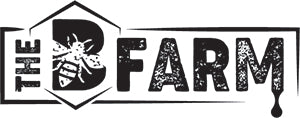Beekeeping is a delicate balance between managing the hive and ensuring the bees are happy and healthy. Unfortunately, honeybees are vulnerable to many kinds of pests and diseases. One of the most common threats to honeybee colonies is the honeybee mite. Find out all you need about honeybee mites with a quick guide to understanding these annoying critters.
What Are Honeybee Mites?
Honeybee mites are parasitic mites that live on bees’ bodies and feed on their blood—think of the relationship dynamic of mosquitos to humans, and you can understand the relevance. Beekeepers need to be aware of two types of honeybee mites—the Varroa mite and the Tracheal mite. The Varroa mite is the most destructive pest to honeybees and can quickly decimate a colony if left untreated. On the other hand, the Tracheal mite lives in the windpipes of bees, and if untreated, bees could choke.
The Varroa Mite
The Varroa mite is oval-shaped, with reddish-brown skin that lives on the bodies of adult bees and their larvae. They reproduce in bee brood cells and can multiply rapidly. Varroa mites spread disease, weaken bees, and make them more susceptible to other pests and diseases. Beekeepers should check their colonies regularly for signs of this mite and take swift action to control them.
The Tracheal Mite
Tracheal mites are tiny, worm-like parasites that live in the respiratory tubes of bees. They can cause respiratory distress, weaken bees, and decrease their lifespan. They are less common than Varroa mites but can still cause significant damage to a hive if left untreated. Beekeepers can control tracheal mites using organic treatments such as menthol crystals and thymol oil.
How To Control Honeybee Mites
As a beekeeper, it’s essential to take preventative measures to control mite infestations for your bees. Many chemical and organic treatments are available on the market to control mite populations. Chemical treatments such as Apistan and Checkmite+ are effective against Varroa mites but can harm bees if not used correctly. Organic methods, including powdered sugar, menthol crystals, and thymol oil, are safer if used according to the label.
Remain Vigilant of Mites With The B Farm
As a concerned apiarist, it’s crucial to remain vigilant about honeybee mites. These parasites significantly affect the health and productivity of your hive. Fortunately, with regular monitoring and the proper use of treatments, you can keep these pests under control. Remember, a healthy hive is a productive hive. If you want to expand your colony or start anew, consider The B Farm’s nuc beehives for sale. These starter colonies are an excellent choice for beginners or those looking to expand their apiary. Act now to protect your bees from mites and provide them with the best home. Let’s preserve our brood from mite infestations, starting with The B Farm!
